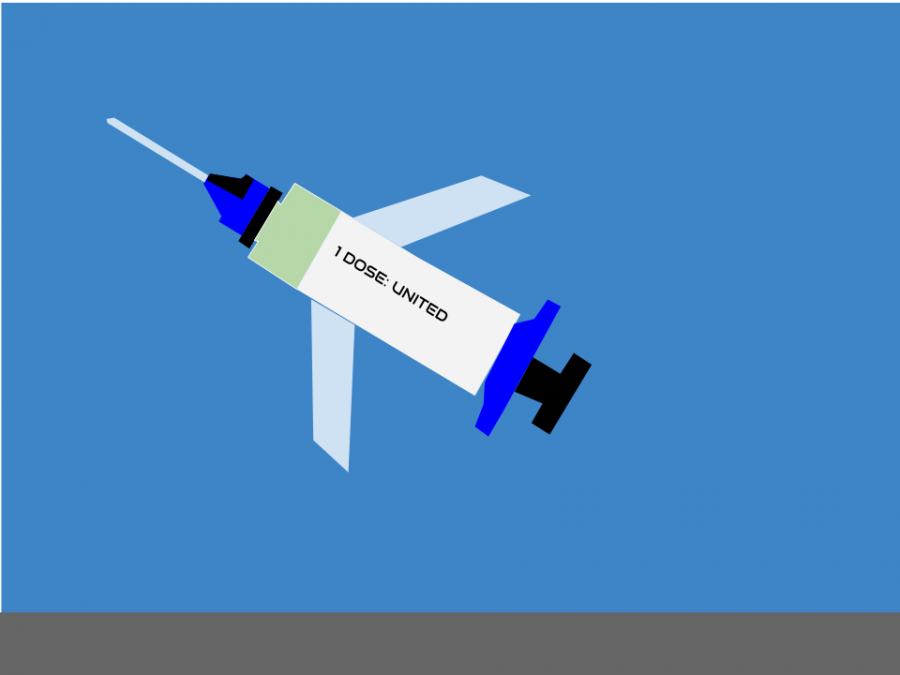United Airlines No Longer United: Unvaccinated Employees Fired
Graphic: Liam Tenenbaum
October 21, 2021
On August 6, United Airlines announced that it will require vaccination for its employees, a precedent for all airline enterprises across the country. By October 25, this mandate is required to be followed by all 70,000 US employees, or they face the risk of termination.
According to Our World in Data, “64.23% of the United States has received at least one vaccine dose.” With vaccination rates continuing to rise daily, airline companies, some of the hardest impacted by the pandemic, have found the time right to require vaccination in hopes of returning to their old stature.
Although United’s measures of returning to financial stability are controversial, they were extremely effective. According to The New York Times, “99% of [United’s] U.S. work force of 67,000 had been vaccinated,” proving that requiring vaccination might be a strategy used more in the future. Already, other corporations have followed suit, including Tyson Foods. According to CNBC, “more than 90% of its 120,000-person workforce has been vaccinated against COVID.” From these seemingly positive results, there could be an increase in companies that require vaccination in the near future. There is also upside in customer relationships, which some people may feel more comfortable interacting with vaccinated employees. “I think companies should require their employees to get vaccinated because it makes the people who have relationships with this company feel safer,” Sydney Seifert (’25) said.
Furthermore, United’s stringent vaccination rules are not outside of anyone, including those of medical problems and opposing religious beliefs. “Any employee who is allowed to remain unvaccinated for religious or medical reasons will be placed on leave, in many cases unpaid, starting Oct. 2,” United said. This was a bold move from United, and was disagreed with by many. However, it is legal, and as stated by the U.S. Equal Employment Opportunity Commission, “any company is within its legal right to require employees to be vaccinated, barring any conflicting disability or religious belief.”
Though few have used the same vaccination requirements as United, other organizations, especially Airlines, have used different strategies to increase vaccination rates in their employees. According to The New York Times, “Delta Air Lines announced last month that it was adding a $200 monthly surcharge on its health care plan for unvaccinated employees.” Additionally, Delta is going to require all newly hired employees to be vaccinated.
Other Airlines such as American Airlines have decided not to place mandates, and the conflict over whether these mandates shouldn’t be implemented makes for a heated discussion. For example, According to CNBC, “Southwest Airlines CEO Gary Kelly has said he does not believe the company should mandate vaccines but warned employees this week that federal mandates could require staff to be vaccinated.”
The whole idea of mandated vaccination can be scary, and this might pressure people away from getting the vaccine. “The word mandate scares people away, because it feels as if there is no choice in getting it,” said Ms. Cassiello, the School Nurse. She recommends the usage of the word requirement, especially when it comes to a role in a company. This encourages people to know which jobs and lifestyles they can have while being unvaccinated, if they choose to do so‘
With airlines making many of the early decisions for vaccination mandates, it will be interesting to see how the work force progresses from here.

















































































































































